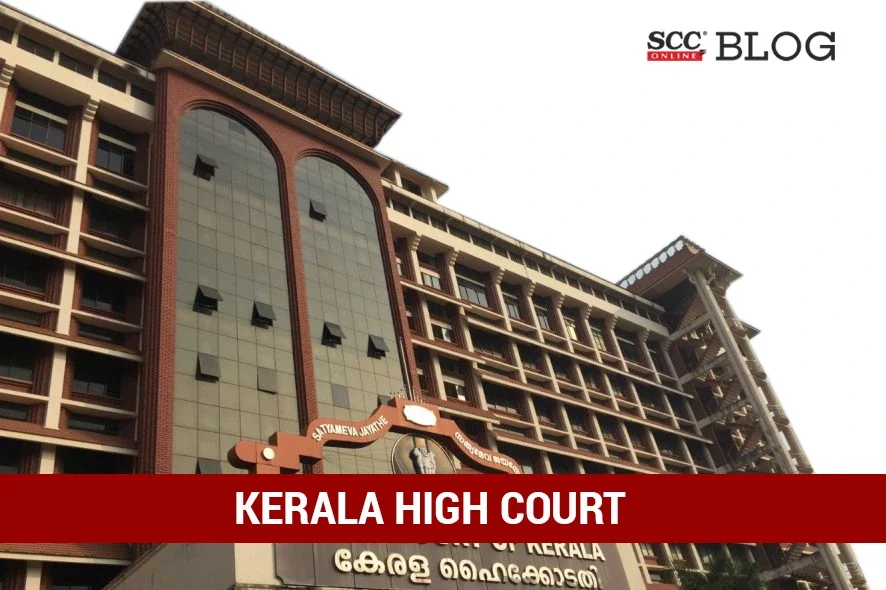Kerala High Court: In a petition filed under Article 227 of Constitution of India challenging order passed by Family Court on 7-05-2021 allowing request for directions to undergo DNA test for proving paternity of minor daughter to be approved by the Court that the respondent was her father, Mary Joseph, J. upheld the order passed by the Family Court considering the prima facie evidence justifying the averments of their long cohabitation and birth of their daughter.
Maintenance in Live-in relationship: Case facts
The petitioner and respondent were in love and lived together as husband and wife after the respondent visited her in Mumbai and stayed with her. The two stayed together at other places as well in Kerala. When the petitioner conceived and the same was informed to the respondent, and he sent her back to Mumbai, stayed connected through telephone and even promised that he will marry her and look after the child in her womb. The girlchild was delivered in Kerala on the respondent’s instruction and during her stay there, she came to know that the respondent married another lady. When she contacted him over telephone, the respondent promised to look after her and the child as earlier and also threatened that if anyone came to know about their relationship, he would not maintain them anymore.
He kept sending maintenance allowance, took care of daughter’s educational expenses and also stayed together during vacation. The petitioner insisted upon him to make permanent arrangements to secure their life, he agreed to buy a flat and an insurance policy for the daughter’s education and marriage but failed to do so. When the petitioner demanded compliance, he stopped providing maintenance to them. Even his wife came to her and threatened that if further demands were made, she would make arrangements to finish off the petitioner and her daughter, which was followed by respondent completely neglecting the petitioners. The petitioner and their daughter were living separately from the respondent since 10-12-2013.
Petition was filed before the Family Court seeking status of a legally wedded wife, declaration of daughter born in the wedlock by deciding her paternity, past maintenance of Rs 36 lakhs, further maintenance of Rs 50,000 per month for the daughter till she attains majority, recovery of Rs 1 Cr towards marriage expenses. The petitioner contended that she gained the status of a wife due to long cohabitation, and that the marriage solemnized with another was ‘void ab initio’.
The respondent specifically denied marital relationship or cohabitation with the petitioner and even the paternity of girlchild. This was followed by a petition seeking directions for the respondent to undergo blood test for DNA identification. The same was objected by the respondent pointing fingers at the petitioner’s character. The Family Court allowed DNA examination and directed the respondent to give his blood sample after finding that the petitioner succeeded in prima facie proving long cohabitation with the respondent. The same was challenged by the respondent in the instant matter.
Court’s analysis of law on DNA testing for paternity
The Court referred to Ivan Rathinam v. Milan Joseph [2018 (3) KHC 234] wherein it was held that petition seeking maintenance under Section 125 of CrPC could not be stretched to bring enquiry on paternity of a child. The Court further went through cases like Goutam Kundu v. State of W.B., (1993) 3 SCC 418 and Bhabani Prasad Jena v. Orissa State Commission for Women, (2010) 8 SCC 633 restricting the scope of DNA test or paternity test as a matter of routine and only to be allowed after considering diverse aspects under Section 112 of Evidence Act, 1872.
The Court perused several photographs of the petitioner and respondent which were taken during different stages of growth of the girlchild. While the respondent took a specific stand that such photographs were falsely created by the petitioner, but the Court did not agree with such contention and held that the photographs could be considered as prima facie evidence justifying the averments of their long cohabitation and birth of their daughter. It further considered the respondent’s failure to establish prima facie case of alleged immoral life led by the petitioner and expressed that the request for directions of blood test for DNA determination could not be thrown aside. The Court was cautious that “If an order of the nature is declined that would have the impact of bastardising the minor girl child among the public. Undoubtedly that would caste a social stigma upon the child as well as the mother respectively as ‘bastard’ and ‘immoral’.”
The Court explained that “an illegitimate child is also eligible for maintenance allowance but, for that paternity is a very relevant aspect to be established so as to enable the court to direct payment from the respondent who was alleged as his father.”
The Court therefore upheld the order issued by Family Court directing the respondent regarding conduct of blood test for DNA analysis.
[X v. Y, 2023 SCC OnLine Ker 4984, decided on 30-06-2023]
Judgment by: Justice Mary Joseph
Advocates who appeared in this case :
Advocate Pradeesh Chacko, Advocate Thomas M. Jacob;








